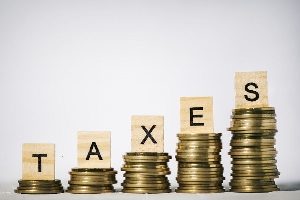- Home - News
- TWI News | TV
- Polls
- Year In Review
- News Archive
- Crime & Punishment
- Politics
- Regional
- Editorial
- Health
- Ghanaians Abroad
- Tabloid
- Africa
- Religion
- Election 2020
- Coronavirus
- News Videos | TV
- Photo Archives
- News Headlines
- Press Release
Business News of Saturday, 24 October 2015
Source: B&FT
Korea Eximbank's Activities in Ghana
Korea Eximbank is one of the key Official Development Assistance (ODA) player in the African continent. It provides ODA to partner countries through the Economic Development Cooperation Fund (EDCF).
The Economic Development Cooperation Fund (EDCF) was established by the Korean government in 1987 to promote economic exchanges with the developing world and to assist developing countries in achieving industrialisation and economic stability through the provision of long-term, low-interest credit. Korea Eximbank currently manages the fund as its trustee.
By end of 2014, Korea Eximbank has committed EDCF amounting to US$2.21billion for African countries. More recently, Korea Eximbank is actively enhancing economic cooperation with African partners by establishing three representative offices in African nations including Ghana, Mozambique, and Tanzania.
In Ghana, the Accra Representative Office of Korea Eximbank officially opened in May, 2015, and has supported EDCF projects in close cooperation with the Ghanaian government since then.
Korea Eximbank has already supported five projects here amounting to US$181million and we now introduce its first project, the Petroleum Products Storage Depots Project. A series of articles will be released subsequently to cover the other four projects in order to help readers understand the role of Korea Eximbank as an ODA provider.
For the Petroleum Products Storage Depots Project, Korea Eximbank provided a US$13million EDCF loan with an aim to construct petroleum depots in three major regions including Accra Plains, Mami Water, and Bolgatanga. The project was implemented from July 1991 to March 1994 by SK & Samsung Engineering consortium, the constructor, and monitored by Hyundai Engineering and local companies as the consultants.
At the beginning of the 1990’s demand for more petroleum product storages was rising due to the aged and southern-concentrated (Tema, Takoradi, and Kumasi) petroleum plants, with their total storage capacity being 378 thousand barrels (60,100m3) which lasted only three weeks. Under the 1983 Economic Recovery Programme of the Ghanaian government, the domestic demand for petroleum had risen more than the production capacity.
This project was significant in that it was the first EDCF project in Ghana, and cooperated with other organisations such as the World Bank and British Overseas Development Administration which had supported the construction of four other storage depots. Overall, seven storage depots were constructed. Among the total new storage depots constructed, the three EDCF storage depots accounted for 50% in terms of the storage capacity -- which was up to 10 day-consumption level (based on the then daily consumption of 21,310 barrel).
Once completed the storage depots facilitated the balanced distribution of petroleum products among various regions, supporting the further economic development of Ghana. The completion of the first project opened up more project opportunities financed by the Korea Eximbank's EDCF: such as the LPG Cylinder Manufacturing Plant Project, the Buipe-Bolgatanga Petroleum Pipeline Project, as well as on-going projects such as the Wa Water Supply System Development Project and the Prestea-Kumasi Power Enhancement Project.











